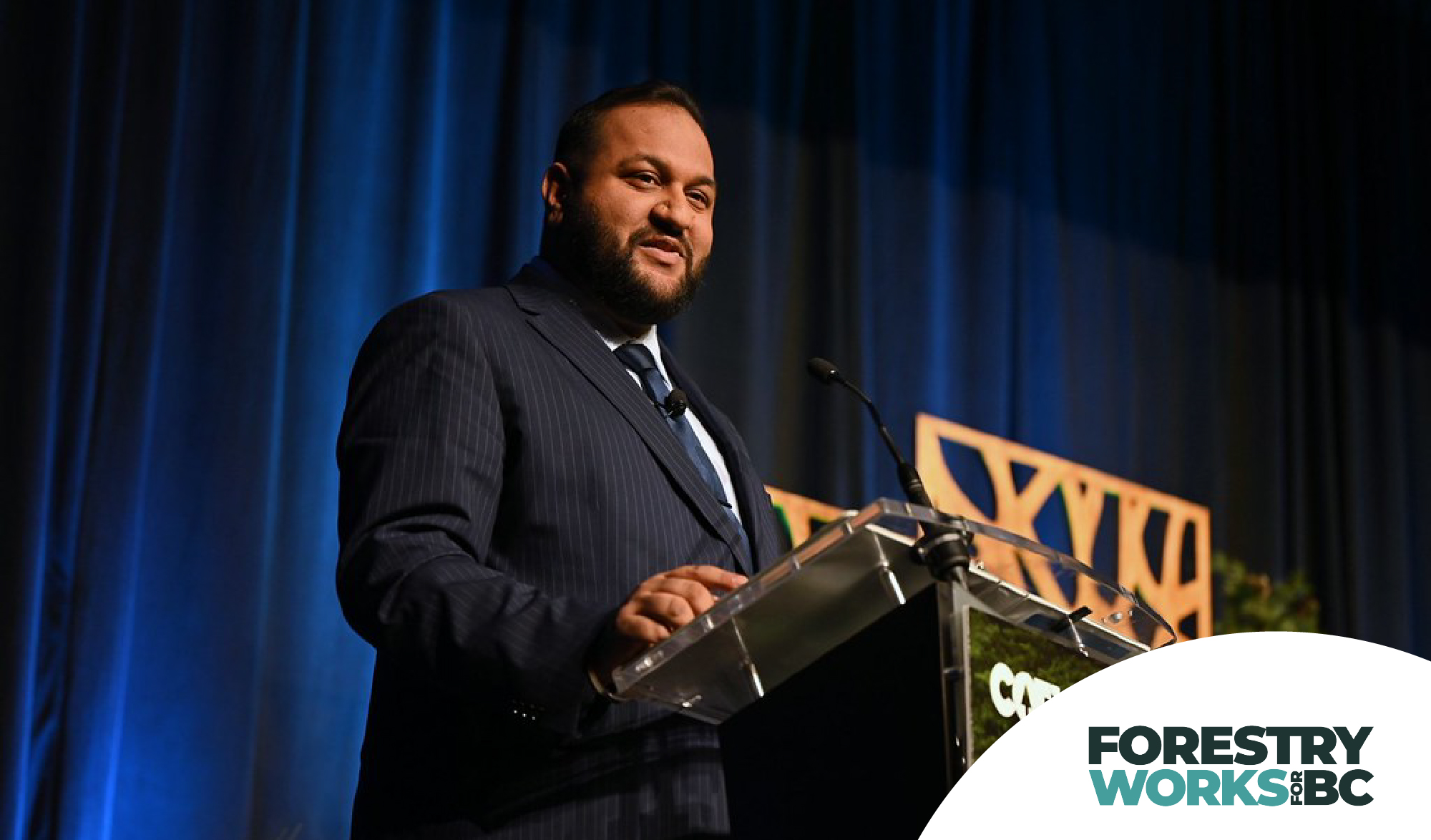A few weeks ago, I stood on stage at the COFI convention in Prince George and asked a question I keep coming back to: What does forestry mean to you? Over the past few months as B.C.’s Minister of Forests, I’ve travelled to more than 20 communities from the southern interior to the north and up the Island. I’ve met mill workers, forestry contractors, First Nations leaders, business owners, and families who’ve built their lives around this sector. And through every conversation, one thing has become clear: forestry is personal. It’s not just about trees. It’s about people. It’s about early mornings, boots on gravel, and the hum of trucks heading out on logging roads.
It’s about towns that were built on forestry and are still rooted in it today. That’s why, at COFI, I made a bold announcement: BC Timber Sales (BCTS) will expand its role to take on more leadership in active forest stewardship. With the guidance of our BCTS Taskforce, BCTS will begin work immediately across four business areas to reduce wildfire risk through fuel load reduction. We are also going expand thinning practices. This shift isn’t just about responding to the climate crisis. It’s about preparing B.C.’s forestry sector for the future. One that’s more sustainable, more resilient, and more rooted in community. We are also changing how auctions work, making them more efficient, timely, and responsive. That means fewer no-bids and more fibre getting to market. We’ve doubled the volume available for value-added manufacturers, and opened the door for smaller producers.
That’s real change. But here’s something I feel strongly about: Forestry workers must have a seat at the table, not just in name, but in action. Decisions shouldn’t be made for them, they must be made with them. These are the people who show up in every season, weather every downturn, and power the engine of this sector. They deserve more than consultation they deserve partnership, good-paying jobs, and a future they can believe in. That’s why we’re acting boldly from expanding BCTS’ role, to investing through FireSmart BC and FESBC, to work with First Nations on stewardship, silviculture, and continuous cover harvesting. Because the truth is, the biggest threat to forestry isn’t just tariffs or market shifts it’s the climate crisis and the growing severity of wildfires. Last year alone, wildfires wiped out the equivalent of 20 years’ worth of annual harvest. We can’t afford to wait. So yes, change is necessary but it must be change that builds stability. It must create leadership.
And it must include the people who have kept this sector going through thick and thin. Forestry in B.C. is not just our past, it’s our future. And that future depends on us working together, industry, workers, First Nations, and government — to build a sector that gives back more than it takes. For me, forestry means people, place, and possibility. That’s what I’m fighting for and I won’t stop until we get there.
Ravi Parmar
MLA for Langford-Highlands and British Columbia’s Minister of Forests

